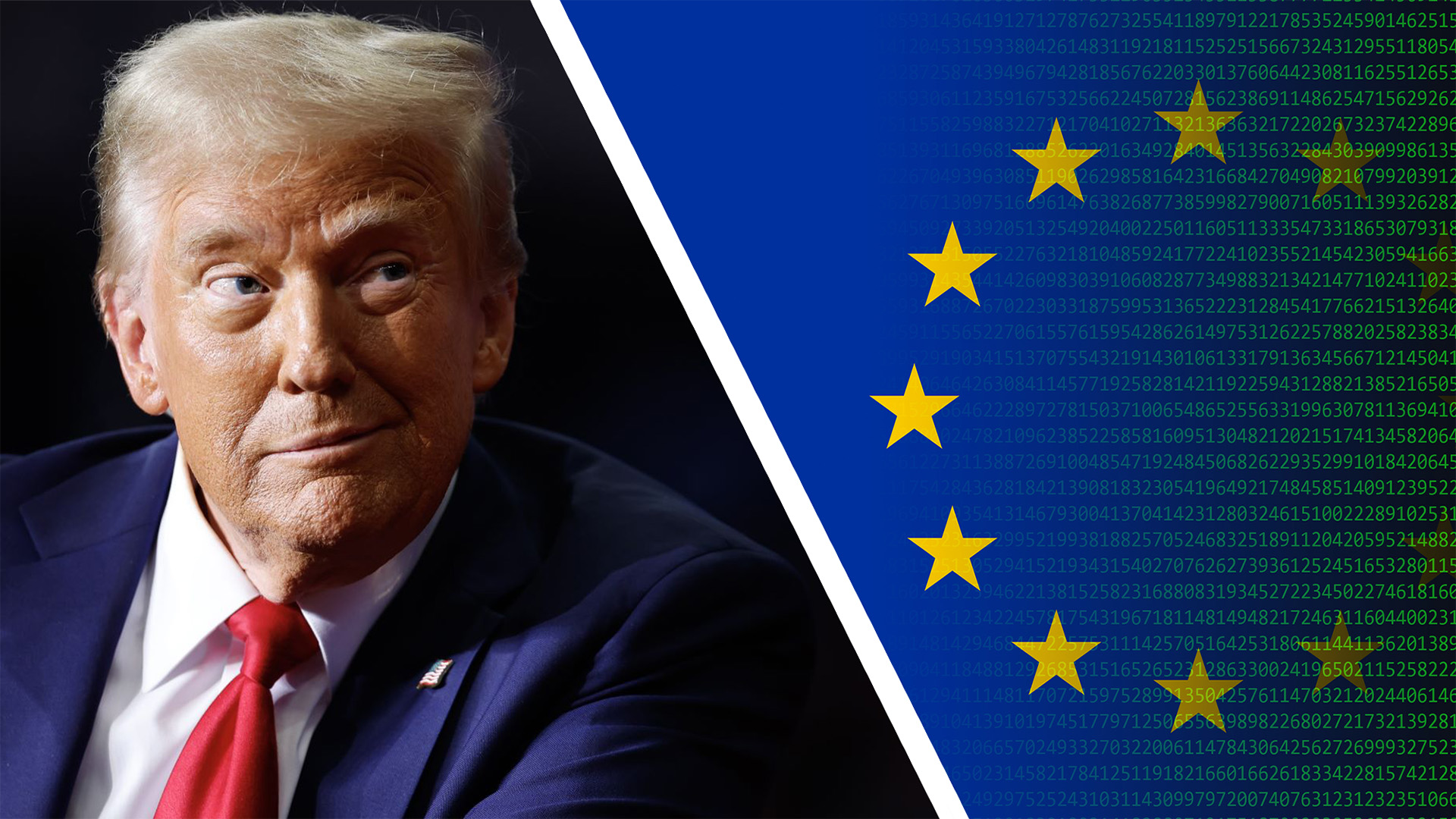EU rejects claims of censorship targeting US tech giants – but Trump threatens sanctions
According to US officials, the EU's Digital Services Act limits free speech and unfairly targets American tech firms

Sign up for breaking news, reviews, opinion, top tech deals, and more.
You are now subscribed
Your newsletter sign-up was successful
- The European Commission rejects accusations that the Digital Services Act (DSA) is designed to harm US big tech
- The EU also denies that DSA content-removal requirements constitute internet censorship
- This comes as Trump threatens sanctions against EU member states implementing DSA rules
No, the EU's Digital Service Act (DSA) doesn't constitute internet censorship and isn't designed to harm US big tech giants specifically.
This is the blunt reply from the European Commission on Tuesday, August 26, 2025, in response to accusations made by US President Donald Trump the day before – Reuters reported.
On Monday, in fact, another report from Reuters revealed that the Trump administration was considering imposing sanctions against the European Union and any member states looking to implement DSA rules.
The EU's Digital Service Act seeks to create a safer online environment, said the EU, by limiting the spread of illegal content, including hate speech and child sexual abuse material, and disinformation on digital platforms. It also bans manipulative advertising practices.
Washington sees these actions as restrictions on Americans' freedom of speech, with a government spokesperson confirming to Reuters that authorities are monitoring the situation in Europe "with great concern."
DSA enforcement decisions have so far affected X and Meta, but also Chinese-owned companies like AliExpress, Temu, and TikTok, said an EU spokesperson.
Beyond the EU

US officials' concerns around new digital regulations aren't limited to the EU, though, nor to the Digital Service Act.
In a Truth Social post, Trump shared his intentions to "impose substantial additional tariffs" on all countries that target American tech companies with digital taxes or regulations, "unless these discriminatory actions are removed."
This comes only days after a pledge from the Chair of the Federal Trade Commission (FTC) to at least 13 US tech giants, including Apple, Alphabet (parent firm behind Google), Meta, Microsoft, and Amazon, to resist UK and EU demands to weaken encryption and censor content.
Besides the EU DSA, the FTC raised the alarm about two UK laws in particular – the Online Safety Act and Investigatory Powers Act.
US officials have been critical about the latter, following a Technical Capability Notice (TCN) issued under the law that hit Apple in February and led the tech giant to remove its advanced end-to-end encryption protection from iCloud in the UK market. The UK, however, has now agreed to drop its Apple encryption backdoor request, in a victory for Washington.
At the end of July, mandatory age verification in the UK was also enforced as per the Online Safety Act, age-gating not just adult-only content, but also so-called legal but harmful material across multiple platforms like social media, dating apps, and even music streaming services, like Spotify.
Millions of Brits have so far turned to the best VPN apps to bypass age checks, mostly for fear of the privacy and security consequences of sharing their most sensitive data with third parties.
You might also like

Chiara is a multimedia journalist committed to covering stories to help promote the rights and denounce the abuses of the digital side of life – wherever cybersecurity, markets, and politics tangle up. She believes an open, uncensored, and private internet is a basic human need and wants to use her knowledge of VPNs to help readers take back control. She writes news, interviews, and analysis on data privacy, online censorship, digital rights, tech policies, and security software, with a special focus on VPNs, for TechRadar and TechRadar Pro. Got a story, tip-off, or something tech-interesting to say? Reach out to chiara.castro@futurenet.com
You must confirm your public display name before commenting
Please logout and then login again, you will then be prompted to enter your display name.